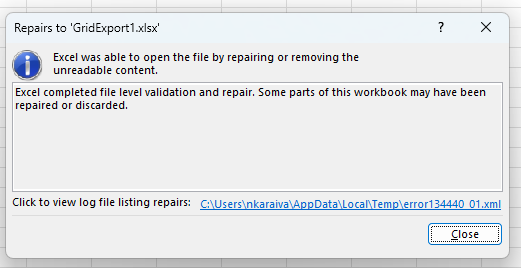In the following scenario, the item's text in the drop-down list shows different text from the selected item.
When the document is open in a web browser :
When the document is open in the RadPdfViewer control.
Editor open and editor closed:

On the first click, the ContextMenu (or commandbar menu) will be shown with scrollbars. If I dismiss and immediately click again, the scrollbars are now gone. Although it is not consistent, for some menu items, the scrollbars are always shown.
The content is exported correctly, but the following error occurs:
In this specific scenario, we have a menu with 2 menu items: &File and &Open. The mnemonic sign is set to the F and O letters. In the form, we have a TextBox control which is currently focused. The next step is to press the Alt key while the TextBox is focused. Pressing some other letter, D for example, the letter will be typed in the TextBox. This letter does not exist as a mnemonic, and the RadMenu will ignore it. The RadMenu remains in active mnemonic state.
Expected behavior: Using none mnemonic letter should not be accepted by any other control until this state is closed in the RadMenu.
We could improve the existing logic by raising it indifferently.





